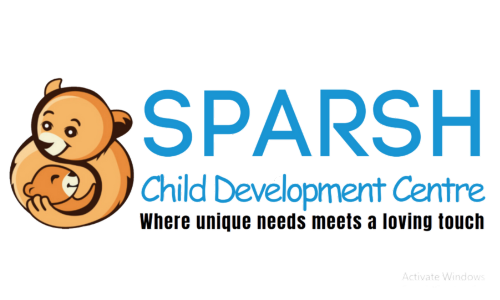DYSARTHRIA

Dysarthria can occur in children due to neurological conditions that affect muscle control for speech. In pediatrics, dysarthria is typically seen in cases like:
- Cerebral Palsy : The most common cause, where impaired muscle control affects speech clarity.
- Traumatic Brain Injury (TBI) : Accidents or injuries that cause brain damage can result in dysarthria.
- Muscular Dystrophy(TBI) : Muscle weakness over time impacts speech muscles.
- Genetic Disorders : Conditions like Down syndrome may sometimes involve dysarthria due to low muscle tone.
- Neurodegenerative Diseases : Rare but possible in children, affecting motor control for speech.

Dysarthria can occur in children due to neurological conditions that affect muscle control for speech. In pediatrics, dysarthria is typically seen in cases like:
- Cerebral Palsy : The most common cause, where impaired muscle control affects speech clarity.
- Traumatic Brain Injury (TBI) : Accidents or injuries that cause brain damage can result in dysarthria.
- Muscular Dystrophy(TBI) : Muscle weakness over time impacts speech muscles.
- Genetic Disorders : Conditions like Down syndrome may sometimes involve dysarthria due to low muscle tone.
- Neurodegenerative Diseases : Rare but possible in children, affecting motor control for speech.
Is Dysarthria the Same as Speech Delay in Autism?
No, dysarthria and speech delay in autism are different. Here’s why:
- Cause : Dysarthria results from muscle control issues due to neurological impairment. Speech delays in autism, however, are typically due to challenges in language processing, social communication, and sometimes sensory integration, not muscle weakness.
- Speech Characteristics : Dysarthria presents as slurred, slow, or muffled speech because of poor muscle control. In autism, speech issues often include atypical tone, rhythm, or echolalia (repeating phrases) rather than muscle-based difficulties.
- Treatment Focus :Dysarthria treatment targets strengthening and controlling speech muscles through motor exercises, whereas speech therapy in autism focuses on enhancing language skills, social interaction, and often pragmatic (social) communication.


Is Dysarthria the Same as Speech Delay in Autism?
No, dysarthria and speech delay in autism are different. Here’s why:
- Cause : Dysarthria results from muscle control issues due to neurological impairment. Speech delays in autism, however, are typically due to challenges in language processing, social communication, and sometimes sensory integration, not muscle weakness.
- Speech Characteristics : Dysarthria presents as slurred, slow, or muffled speech because of poor muscle control. In autism, speech issues often include atypical tone, rhythm, or echolalia (repeating phrases) rather than muscle-based difficulties.
- Treatment Focus :Dysarthria treatment targets strengthening and controlling speech muscles through motor exercises, whereas speech therapy in autism focuses on enhancing language skills, social interaction, and often pragmatic (social) communication.
In short, while both conditions involve speech challenges, the underlying causes and treatment approaches for dysarthria and speech delays in autism differ significantly.

